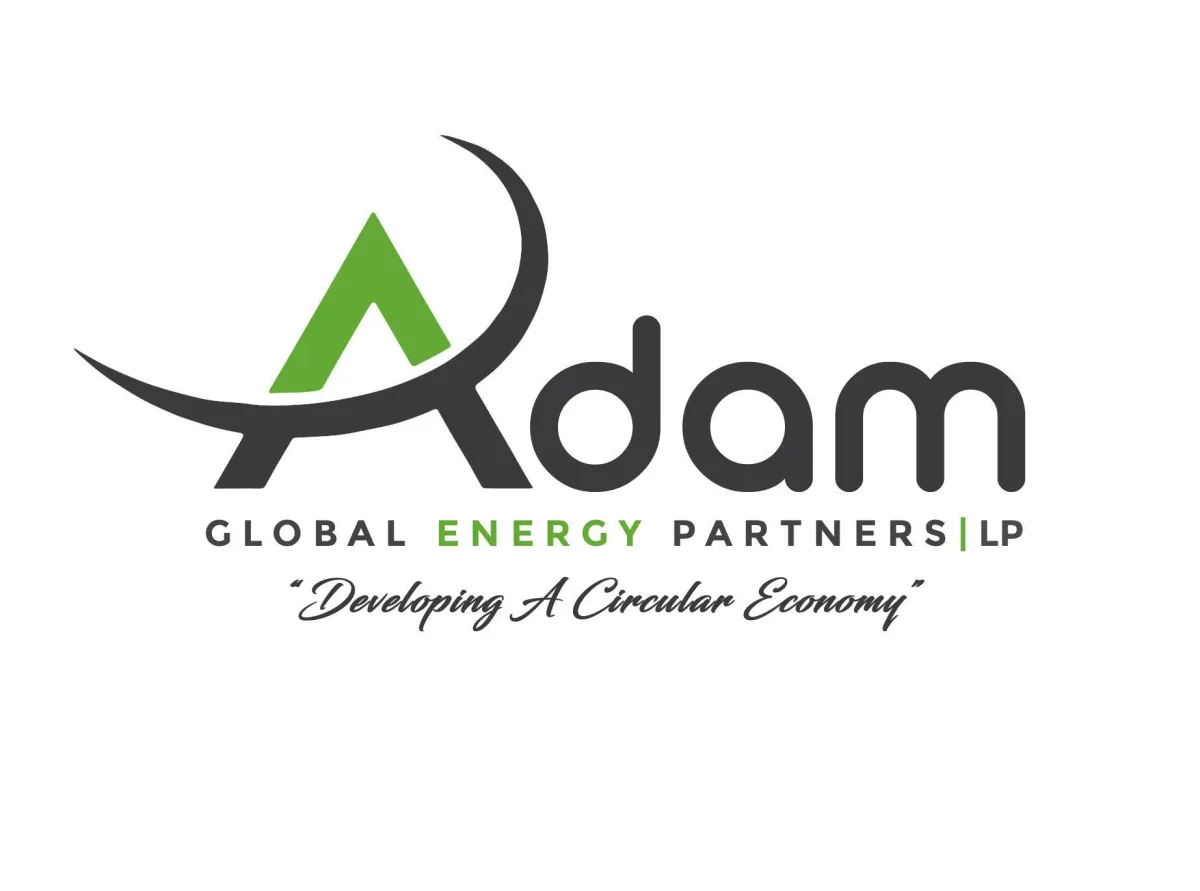Commercial Solar Energy Consulting
ADAM Global Energy Partners LP - Committed to A Better World
Welcome to
ADAM Global Energy Partners LP's Commercial Solar Energy Consulting.
We are thrilled to offer our expertise and experience to help your business reach its full potential.
Our team of consultants have years of experience and we are committed to helping our clients succeed.
Welcome to Omega Marketing Services LLC, where our value is in the solutions we provide.
Our company offers a wide range of services including marketing, global business funding, and strategic business consulting.
Our team of experts is dedicated to providing customized solutions that meet the unique needs of our clients.

Commercial Solar Energy Consulting Services
At ADAM Global Energy Partners LP, we recognize the global challenge of energy consumption. We tailor our consulting services to meet your county's specific needs and your energy cost reduction goals. Our collaborative approach involves understanding your business's energy needs, allowing us to create a customized plan for long-lasting, solar solutions that fit your budget and objectives.
Commercial Solar Energy Installation Checklist:
Pre-Installation::
Assess Your Energy Needs: Analyze your business's electricity usage patterns and peak demand to determine the optimal system size.
Evaluate Your Roof: Get a professional inspection to ensure your roof's structural integrity and suitability for solar panel installation. Consider factors like roof material, age, condition, and available space.
Research and Compare Installers: Obtain quotes from qualified solar installers, comparing their experience, warranties, technology offerings, and pricing structures.
Secure Financing: Explore available financing options like loans, leases, or power purchase agreements (PPAs) to fit your budget and cash flow.
Understand Permits and Incentives: Research permit requirements in your area and identify any applicable government incentives or tax credits that could reduce your upfront costs.
Installation:
System Design and Planning: Collaborate with your chosen installer to design a system that meets your energy needs, budget, and roof specifications. This includes selecting specific equipment like panels, inverters, and mounting systems.
Permits and Approvals: Obtain necessary permits from local authorities and secure approval from your utility company for grid interconnection.
Equipment Delivery and Installation: The installer will deliver and install the solar panels, inverters, and other system components on your roof or designated area.
Electrical Connection and Metering: A qualified electrician will connect the system to your electrical grid and install a meter to track energy production and consumption.
System Inspection and Commissioning: A final inspection will be conducted to ensure the system is installed correctly and operating safely.
Post-Installation:
System Monitoring and Maintenance: Regularly monitor your system's performance through online monitoring tools or your installer's platform. Schedule routine maintenance as recommended by the manufacturer.
Warranty and Performance Guarantees: Understand the warranty coverage for your system's components and performance guarantees offered by the installer.
Track Savings and Energy Impact: Monitor your energy bills and track the amount of energy your system generates to measure your cost savings and environmental impact.
Stay Informed: Keep yourself updated on advancements in solar technology and emerging policy changes that could affect your system or financial benefits.
Additional Tips:
Get multiple quotes and compare proposals carefully before making a decision.
Choose a reputable and experienced solar installer with a strong track record.
Understand the technical specifications of the proposed equipment and ask questions if anything is unclear.
Factor in future plans for your business when determining system size and scalability.
Consider partnering with your installer for system monitoring and maintenance services.
This checklist is an example of what needs to be considered and executed to bring a solar energy project to completion. It also demonstrates the complexity of such a project and why you need expert help with your installation
Working with ADAM Global Energy Partners LP means we have your back and will make sure your solar project goes smoothly and generates the energy, reliability and cost savings that you expect.
Contact us today to learn about our Commercial Solar Energy Consulting services and how we can help your business reach its full potential.
Frequently Asked Questions
Costs and Savings
How much does a commercial solar system cost?
Commercial solar system costs vary depending on size, technology, and installation complexity. Expect ranges from $100,000 to $300,000 per MW.
How long will it take for my system to pay for itself?
Payback periods typically range from 5 to 8 years, depending on factors like system size, electricity costs, and incentives.
What financing options are available for commercial solar?
Loans, leases, and Power Purchase Agreements (PPAs) offer different financing options, with varying upfront costs and ownership models.
What are the potential savings I can expect on my electricity bills?
Savings often reach 50% or more on electricity bills, depending on system size and energy consumption.
Will I still have to pay the utility company with a solar system?
Net metering policies allow excess energy export to the grid, earning credits to offset future bills. In some cases, you may still have minimal grid fees.
System Design and Installation
What size solar system do I need to meet my energy needs?
A thorough energy audit determines your needs and the ideal system size to meet them.
What type of roof is suitable for solar panels?
Most roofs are suitable with proper inspections. Some flat roofs may require adjustments.
Will my roof need to be replaced before installing solar?
Replacing before installation might be advantageous due to combined labor savings.
What permits and approvals are required for a commercial solar installation?
This varies by location, but typically involves building permits and grid interconnection approvals.
How long does the installation process typically take?
Complex systems may take a few weeks, while simpler ones can be installed within days.
Performance and Maintenance
How much electricity will my system generate each year?
Annual estimates are provided based on system size, location, and weather patterns.
What happens if my solar panels are shaded?
Some shade impact is inevitable, but strategic panel placement minimizes its effect.
How can I monitor the performance of my system?
Online monitoring systems track energy production and allow for system optimization.
What kind of maintenance does a solar system require?
Regular professional inspections and occasional cleaning ensure optimal performance.
What happens if my system needs repairs?
Most warranties cover repairs, with readily available technicians for swift service
Environmental Impact and Incentives
How much will I reduce my carbon footprint with a solar system?
The amount of reduction depends on system size and location, but it can be significant.
What government incentives are available for commercial solar?
Federal tax credits, state rebates, and net metering policies offer generous financial incentives.
How does solar energy impact the future of the electricity grid?
Solar energy diversifies the energy mix, reduces reliance on fossil fuels, and strengthens grid resilience.
Is solar energy the right choice for my business, considering environmental and sustainability goals?
Solar significantly reduces your carbon footprint and demonstrates your commitment to sustainability.
Welcome to Omega Marketing Services LLC, where our value is in the solutions we provide.
Our company offers a wide range of services including marketing, global business funding, and strategic business consulting.
Our team of experts is dedicated to providing customized solutions that meet the unique needs of our clients.
Solar Energy Glossary
Basic Components:
Solar Panel: Multiple solar cells connected in series or parallel, generating more DC electricity than a single cell.
Photovoltaic (PV) Array: Multiple solar panels connected to produce even more DC electricity.
Inverter: Converts DC electricity from the PV array into usable alternating current (AC) for your business.
Balance of System (BOS): All other components besides the panels, including mounts, wiring, monitoring systems, and safety equipment.
Key Terms:
Watt (W): Unit of electrical power output.
Watt-hour (Wh): Unit of energy measurement.
Kilowatt-hour (kWh): More commonly used unit for energy, equal to 1,000 Wh.MW
Megawatt (MW): 1,000 kilowatts, or 1 million watts; standard measure of electric power plant generating capacity.
MW‐Hour: 1,000 kilowatt‐hours or 1 million watt‐hours.
Life: The period during which a system is capable of operating above a specified
performance level.
Life‐Cycle Cost: The estimated cost of owning and operating a photovoltaic system for the period of its useful life.
Efficiency: Percentage of sunlight converted into electricity by a solar cell or panel.
Azimuth: Direction of a solar panel's tilt and orientation.
Tilt: Angle of a solar panel relative to the ground.
Net Metering: Selling excess solar energy back to the grid for credit on your electricity bill.
Battery Storage: Storing excess solar energy for later use, increasing energy independence.
Financial Terms:
Return on Investment (ROI): Time it takes for your solar system savings to recoup its installation cost.
Payback Period: Number of years until your energy savings offset the system cost.
Solar Incentives: Government programs and tax credits to encourage solar adoption, reducing upfront costs.
Power Purchase Agreement (PPA): Third-party owns and maintains the solar system, you buy generated electricity at a fixed rate.
SREC: Solar renewable energy certificates (SRECs) are performance-based solar incentives that allow you to earn additional income from your business's solar energy production.
Additional Terms:
Solar Irradiance: Amount of sunlight falling on a surface.
Inverter Sizing: Matching inverter capacity to the PV array's output.
Shading: Obstructions reducing solar panels' efficiency.
System Monitoring: Tracking performance and energy production of your solar system.
